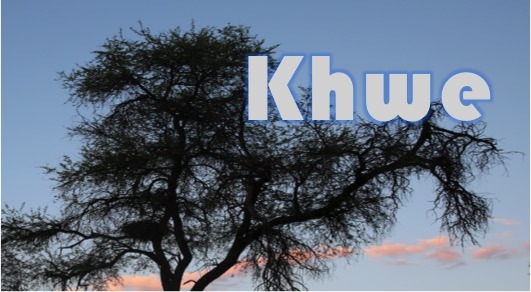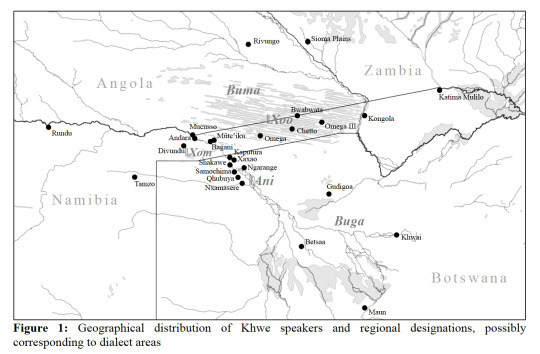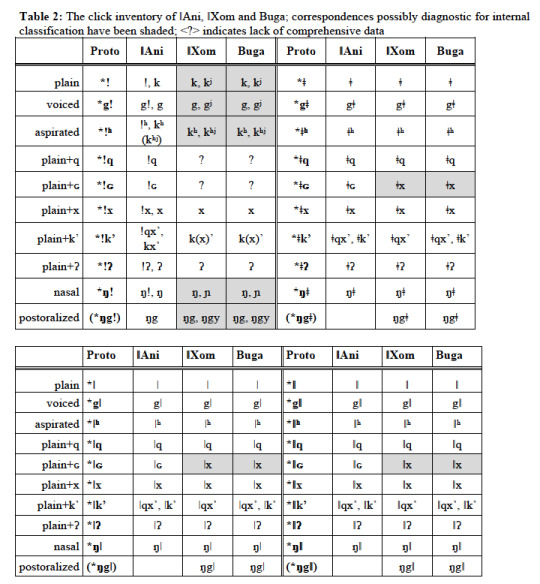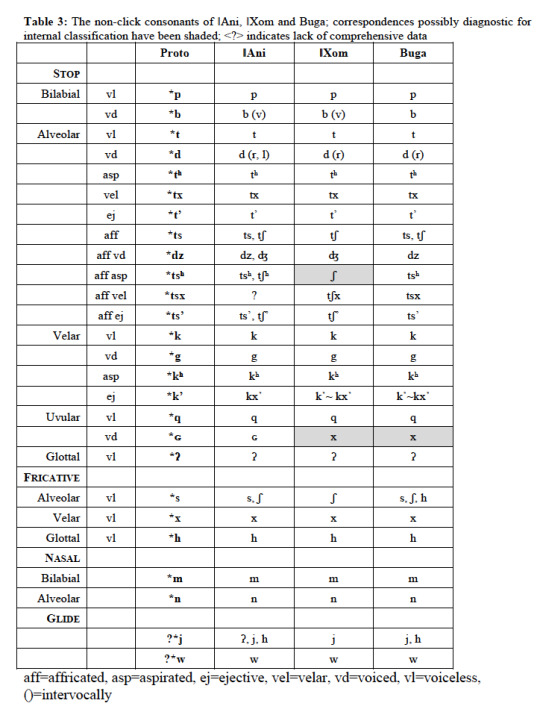#tonology
Text
Queens Thotty
Teen nailed by teacher
trickery aj applegate
Toy loving domina enjoys pussyplay
Jailed ebony girl used by mistress Natasha after being caught masturbat
Le Encanta Cabalgar Pene Grande Le Dilata Bien La Cola a Jazmin La Nena Cross
CUMMING OUT THE JIZZ OF DOMINANT VENEZUELAN AND HE WATCH MY TIGHTHOLE BECOME A LITTLE ROSEBUTT
Skinny teen minx in hardcore adventure
Good morning from Germany
horny teens Gives Blowjob To Dad
#gravic#packsaddles#nivosity#wine-heated#menseful#hydrosulfurous#accelerator#melanoid#tonology#encasement#postinjection#laggen-gird#jily#undieted#bombardman#introvertedness#consuetudinal#beloid#pumpernickel#cystoscopies
1 note
·
View note
Text
getting the urge again to stop everything to just go really in depth with a conlang using everything i know about tonology and prosody. need to make a language with lexical or grammatical tone where the underlying structure cant just be handwaved away as 'this syllable in this word is pronounced with this tone' so bad
10 notes
·
View notes
Text

Samsung Galaxy Soft Case - Overpunishment Meterless Tonology, Alibaba Gui, Atomic atomic, blur, blowy, wavy and pixelate black drawings hovering over plain floor
Abstract designs challenge traditional notions of representation, inviting viewers to appreciate art in a more imaginative and non-literal manner. Abstract designs are artistic compositions that prioritize the use of shapes, lines, colors, and forms divorced from their representational or real-world references. Abstract art is a diverse and innovative artistic movement that prioritizes non-representational and non-figurative forms. Art allows you to explore and express their creativity beyond the constraints of depicting recognizable objects or scenes.
Overpunishment Meterless Tonology, Samsung Galaxy Soft Case.
Order available in @Redbubble
#art#Redbubble#wall#item#illustration#pattern#ecommerce#buy#purchase#abstract design#ootd#decoration#like4like#wallpaper#latest#items#ecommercestore#abstract#design#gradient
0 notes
Text
Khoe-Kwadi: Khwe

Part 3 of my Khoe-Kwadi series: Khwe
Family Overview
Kwadi
Khwe (or Khwedam)
Khwe is a dialect cluster belonging to the Kalahari Khoe subgroup of the Khoe-Kwadi family’s Khoe branch. According to the seminal Khoe classification by Vossen (1997), Khwe is most closely related to Naro and Gǀui-Gǁana, two Kalahari Khoe languages spoken in the Central Kalahari. However, more recent research suggests that Khwe may be closer to the geographically adjacent Kalahari Khoe languages Ts’ixa and Shua.
Where is it spoken?
Historically, Khwe speakers dwelt in a vast area reaching from southeastern Angola and western Zambia across the Namibian Caprivi strip into Botswana’s Okavango Delta. Only recent historical events like the civil war in Angola and the Namibian war of independence led to the present-day situation in which the majority of the 7,000–8,000 remaining speakers reside in the Bwabwata National Park of Namibia and along the Okavango panhandle in northwestern Botswana. Work-related migration, resettlement schemes and the establishment of National Parks during the second half of the 20th century further contributed to Khwe speakers abandoning their traditional settlements in favor of bigger villages close to the roadside.
(Map taken from Fehn 2019)

Where does the term “Khwe” come from?
The orthographic spelling “Khwe” derives from the root *khoe ‘person’, which is shared by all Khoe languages and ultimately gave its name to the language family. The Kwadi branch of the Khoe-Kwadi family has *kho ‘person’, suggesting that the -e ending is a suffix, possibly the common gender plural suffix -(ʔ)e still retained in Kwadi. To distinguish the Khwe dialect cluster from the Khoe language family, it was first spelt <Kxoe> by the linguist Oswin Köhler, and later - in agreement with the community - <Khwe>.
Are there dialects of Khwe?
There are two main subgroups within the Khwe cluster: Khwe “proper” and ǁAni. Due to the current sociolinguistic situation which favors dialect leveling, the dialectal diversity within Khwe may be underestimated by most scholars studying the language. Within Khwe “proper”, at least three varieties (ǁXom, ǁXoo and Buga) can be distinguished by phonological, lexical, and possibly also structural isoglosses. It has also been suggested that there are two sub-branches of ǁAni, a western and an eastern variety. We know very little about the Khwe variants spoken in Angola before the war, but some word lists recorded by the South African scholar E.O.J. Westphal suggest that they may have been phonologically and lexically distinct from the well-studied variety now predominant in the West Caprivi (ǁXom).
What does it sound like?
Different Khwe varieties have different phoneme inventories. Here’s a comparison of three varieties for which sufficient data is available (ǁXom, Buga and ǁAni):
(Tables taken from Fehn 2019)

While ǁXom and Buga have lost the alveolar click and replaced it by a velar or palatal stop (safe for some relic forms), ǁAni retains most of its alveolar clicks.

Although the phoneme inventory of Khwe is fairly large from a cross-linguistic perspective, it is smaller than that of Kalahari Khoe languages spoken in and around the Central Kalahari (Gǀui-Gǁana, and Naro), and substantially smaller than the phoneme inventories found in the southern African click-language families Kx’a and Tuu.
Typological features
In Khwe, the basic word order is SOV, but pragmatic considerations allow for both SVO and OSV. The basic constituent order in the noun phrase is head-final. Nouns in Khwe are optionally marked by portmanteau morphemes encoding person, gender and number (PGN). These clitics serve the function of specific articles and attach to about 75% of the language’s noun phrases. Like other Khoe languages, Khwe has a rich suffixing morphology: Derivational suffixes attach to both verbs and nouns, and a subset of the language’s tense-aspect morphemes is linked to the verb stem via a so-called juncture morpheme. Khwe distinguishes between two juncture morphemes triggering different morpho-tonological processes, one for NON-PAST and one for PAST. Khwe has nine suffixes marking tense-aspect, four in the domain of non-past, and five past-tense markers.
The direct object may optionally be marked by the postposition ʔà, which interacts with the argument’s information-structural properties. Oblique (peripheral) participants are obligatorily marked by a set of semantically specified postpositions. Khwe distinguishes between four syntactic verb classes, according to the number of core participants they may take: intransitives, transitives, ditransitives, and S/O-ambitransitives. Predicates may be simple or complex. Complex predicates display semantic features similar to serial verb constructions and involve two or more verbs, which are connected by the juncture morpheme.
Literature (just a small selection - there is lots of published literature on Khwe)
Brenzinger, Matthias. 1998. Moving to survive: Kxoe communities in arid lands. In Mathias Schladt (ed.), Language, identity, and conceptualization among the Khoisan, 321–357. Cologne: Rüdiger Köppe.
Fehn, Anne-Maria. 2019. Phonological and Lexical Variation in the Khwe Dialect Cluster. Zeitschrift der Deutschen Morgenländischen Gesellschaft 169(1): 9–39.
Heine, Bernd. 1999. The ǁAni: Grammatical notes and texts. Cologne.
Kilian-Hatz, Christa. 2003. Khwe Dictionary with a supplement on Khwe place-names of West Caprivi by Matthias Brenzinger (Namibian African Studies, 7). Cologne: Rüdiger Köppe.
Kilian-Hatz, Christa. 2008. A grammar of modern Khwe (Central Khoisan) (Research in Khoisan Studies, 23). Cologne: Rüdiger Köppe.
Köhler, Oswin. 1981. La langue kxoe. In Jean Perrot (ed.), Les langues dans le monde ancien et moderne, première partie: Les langues de l’afrique subsaharienne, 483–555. Paris: Centre National de la Recherche Scientifique.
Schladt, Mathias. 2000. A Multi-Purpose Orthography for Kxoe: Development and challenges. In Herman M. Batibo & Joseph Tsonope (eds.), The State of Khoesan Languages in Botswana, 125–139. Gaborone: Tasalls.
Vossen, Rainer. 1997. Die Khoe-Sprachen: Ein Beitrag zur Erforschung der Sprachgeschichte Afrikas (Research in Khoisan Studies, 12. Vol. 12. Cologne: Rüdiger Köppe.
Vossen, Rainer. 2000. Khoisan languages with a grammatical sketch of ǁAni (Khoe). In P. Zima (ed.), Areal and Genetic Factors in Language Classification and Description: Africa South of the Sahara, 129-145. Munich. Lincom.
18 notes
·
View notes
Text
Happy Birthday!
Today is the birthday of Ida C. Ward—to celebrate brush up on the phonology and tonology of some African languages.
4 notes
·
View notes
Text
Sabine Zerbian Dissertation
Sabine Zerbian Dissertation
1 Sep 2005 brand, Sabine Zerbian, Malte Zimmermann for helpful discussions and .. This dissertation is about the relation between syntax and prosody.
View all
Sabine Zerbian. ZAS, Berlin . For details on the tonological processes in Northern Sotho, see Zerbian. (2006a, b). 4 PhD dissertation, University of.
View all
Sabine Zerbian1 & Frank Kügler2. 1 University of Stuttgart, 2 University of Potsdam [email protected], [email protected]. ABSTRACT.
View all
5. Apr. 2016 Titel der Dissertation: Predicate-induced semantic prominence in Titel der Dissertation: Sprachstandardisierung in der .. Sabine Zerbian.
View all
Sabine Zerbian . 2004) or Northern Sotho (Zerbian 2006) in which a resumptive object concord on the .. Ph.D. dissertation, Humboldt-University, Berlin.
View all
14 Mar 2016 Us-Based service vs western culture essay online; contact; nursing dissertation sabine zerbian. Money cant buy and juliet love essay
View all
Sabine Zerbian . 2004) or Northern Sotho (Zerbian 2006) in which a resumptive object concord on the .. Ph.D. dissertation, Humboldt-University, Berlin.
View all
Adjacent high tones at word- and phrase level in Tswana. Sabine Zerbian, University of Stuttgart. In the Southern Bantu language Tswana the obligatory contour
View all
in Akan. Dissertation zur Erlangung des akademischen Grades In memory of my aunt, Sabine Genzel. mention Sabine Zerbian. Since she had her office
View all
1 Sep 2005 brand, Sabine Zerbian, Malte Zimmermann for helpful discussions and .. This dissertation is about the relation between syntax and prosody.
View all
22 Sep 2016 Oct 11 New papers and dissertation defensePosted in Bloomington by Isabelle Darcy. As the Fall is . Sabine Zerbian. He is presenting his
View all
der Humboldt-Universität zu Berlin von. Sabine Zerbian, M.A. .. Die Hauptthese dieser Dissertation ist, dass Nord-Sotho keinen obligatorischen Ge- brauch von
View all
Sabine Zerbian1 & Frank Kügler2. 1 University of Stuttgart, 2 University of Potsdam [email protected], [email protected]. ABSTRACT.
View all
in Akan. Dissertation zur Erlangung des akademischen Grades In memory of my aunt, Sabine Genzel. mention Sabine Zerbian. Since she had her office
View all
22 Sep 2016 Oct 11 New papers and dissertation defensePosted in Bloomington by Isabelle Darcy. As the Fall is . Sabine Zerbian. He is presenting his
der Humboldt-Universität zu Berlin von. Sabine Zerbian, M.A. .. Die Hauptthese dieser Dissertation ist, dass Nord-Sotho keinen obligatorischen Ge- brauch von
0 notes
Quote
tonology : (linguistics, uncountable) The study of tone in human languages.
(linguistics, countable) The system of rules governing tones in a particular language.
Wiktionary word of the day, April 5, 2016 - http://ift.tt/1RV1Cph
0 notes
Quote
tonology : (linguistics, uncountable) The study of tone in human languages.
(linguistics, countable) The system of rules governing tones in a particular language.
Wiktionary word of the day, April 5, 2016 - http://ift.tt/1RV1Cph
0 notes
Text
it makes a vague sort of sense and also delights me that all the linguists ive personally met who are really into language documentation and good archival practice thereof are also really big into tonology and vice versa
#i love my advisor and also love getting to take lsa summer institute classes really getting into this now!! wow!!!!#ling blogging#cpost
8 notes
·
View notes
Quote
tonology : (linguistics, uncountable) The study of tone in human languages.
(linguistics, countable) The system of rules governing tones in a particular language.
Wiktionary word of the day, April 5, 2016 - http://ift.tt/1RV1Cph
0 notes
Quote
tonology : (linguistics, uncountable) The study of tone in human languages.
(linguistics, countable) The system of rules governing tones in a particular language.
Wiktionary word of the day, April 5, 2016 - http://ift.tt/1RV1Cph www.zandydee.com
0 notes
Text
Happy Birthday!
Today is the birthday of Ida C. Ward—to celebrate brush up on the phonology and tonology of some African languages.
2 notes
·
View notes
Quote
tonology : (linguistics, uncountable) The study of tone in human languages.
(linguistics, countable) The system of rules governing tones in a particular language.
Wiktionary word of the day, April 5, 2016 - http://bit.ly/1MOT9F1
0 notes
Quote
tonology : (linguistics, uncountable) The study of tone in human languages.
(linguistics, countable) The system of rules governing tones in a particular language.
Wiktionary word of the day, April 5, 2016 - http://ift.tt/1RV1Cph
0 notes
Quote
tonology : (linguistics, uncountable) The study of tone in human languages.
(linguistics, countable) The system of rules governing tones in a particular language. (word of the day date for April 5, 2016)
http://ift.tt/1RV1Cph
0 notes
Quote
tonology : (linguistics, uncountable) The study of tone in human languages.
(linguistics, countable) The system of rules governing tones in a particular language.
Wiktionary word of the day, April 5, 2016 - http://ift.tt/1RV1Cph
0 notes